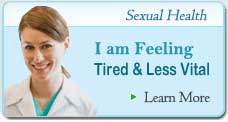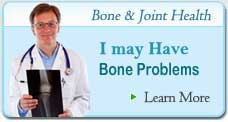» Anti-Aging
» Bones Joints & Muscle Health
» Cardiovascular Health
» Chronic Pain Management
» Dental Health & Wellness
» Digestive Health Problems
- Hemodialysis Treatment For Kidney Failure Explained
- Have Celiac Disease? Find Out The Symptoms & Causes
- What Causes Flatulence? What Steps You Can Take To Treat Excessive Gas
- Discover What We Know About Crohn's Disease - And What We Still Don't
- What Exactly Is Ulcerative Colitis?
» Health Care
» Mental Health
» Sexual Health
» Skin Care

Incontinence – Causes, Complications & Treatments
Incontinence, the loss of bowel or bladder control is one of the most common problems that affect people of both genders all over the world. In the US alone, this problem affects approximately 13 million people.
According to the degrees and forms of incontinence, the treatments also tend to vary. Fortunately, incontinence is something that can be managed, treated or even cured completely depending on the severity of it.
| Rating | Recommended | Description | Review | ||
|---|---|---|---|---|---|
 |  | Super Beta Prostate Beta-Sitosterol Benefits
| Find Out More |
Causes of Incontinence
Speaking about the causes of incontinence, it is mostly caused by the involuntary muscular contractions within the bladder. The weakening of the muscles over time is one of the root causes for urinary incontinence.
The weakening of the muscles can take place owing to several reasons such as multiple sclerosis, neurological disorders and Parkinson’s disease. Underlying conditions such as poor kidney function, diabetes, tumors or stones in the bladder can also lead to this problem.
In some cases, bladder leakage can occur owing to problems such as bladder irritation, constipation, and urinary tract infections.
Sometimes the causes for this condition can be temporary and can be rectified with a simple change in lifestyle or habits such as lowering caffeine, over hydration and limiting the intake of alcohol.
Complications of Incontinence
Incontinence can lead to some adverse complications such as those outlined below:
- Incontinence can increase your chances of contacting urinary tract infections.
- Urinary incontinence can lead to skin infections, rashes and sores from wet skin conditions.
- It can prevent you from participating in day-to-day activities such as exercising, social get togethers, etc.
- It can also affect your work life negatively. Bladder leakage can make you get up frequently during important meetings. It can also cause fatigue, a disturbed sleep or disrupt your concentration at work.
- Incontinence can greatly affect your personal life. Your partner may become frustrated with your regular trips to the toilet. The person suffering from incontinence may also frequently experience feelings of anxiety and depression.
Treatments for Incontinence
The underlying cause and the severity of Incontinence will largely determine the method of treatment for this problem. Your doctor will be able to recommend the best possible course of treatment depending on your condition. Sometimes, a combination of treatments may be needed.
The doctor may initially suggest treatment methods such as behavioral techniques and physical therapy as these are least invasive and less expensive than the other advanced methods of treatment.
Lifestyle changes and behavioral techniques can help treat certain types of urinary incontinence. Bladder training may be recommended by the doctor singly or in combination with other treatment methods to help the patient to overcome the problem of incontinence.
Bladder training involves lengthening the time interval between trips to the toilet so that the patient urinates only once every three or four hours. In addition, the patients may also be taught to relax, distract themselves and learn to control the urges to urinate when he/she undergoes bladder training.
Physical therapy involves kegels or pelvic floor muscle exercises with the aim of strengthening the muscles in the patient so that they can control the urge to urinate frequently.
By strengthening the pelvic floor muscles and urinary sphincter, these exercises can help in treating the problem of incontinence.
Electrical stimulation is another procedure that can help patients to overcome the problem of incontinence. In this procedure, pelvic floor muscles are strengthened or stimulated by inserting electrodes temporarily into the vagina or rectum.
Through gentle electrical stimulation, urge and stress incontinence can be cured to some extent.
Medications That Can Increase Bladder Control
In some patients, doctors use behavioral techniques in conjunction with medications to help patients get relief from the problem of incontinence. The drugs that are commonly prescribed for this problem are listed below:
- Imipramine is a tricyclic anti-depressant that can help cure stress and urge incontinence.
- Anticholinergics are useful in curing urge incontinence. The drugs that are included in this category are tolterodine (Detrol), oxybutynin (Ditropan), fesoterodine (Toviaz), darifenacin (Enablex), trospium (Sanctura) and solifenacin (Vesicare). The side effects that can result from such medications include constipation, dry mouth, flushing and blurred vision.
- Duloxetine is an anti depressant medication that is effective in curing stress incontinence.
- Topical estrogen creams, rings or patches are widely available that can help rejuvenate or tone tissues in the vaginal and urethra areas. This can also help in reducing incontinence symptoms.
Medical Devices To Improve Bladder Control
Nowadays, medical devices are largely being used to treat incontinence. These devices are mostly designed for use by women and include:
The Urethral insert that can be inserted into the urethra; it can help prevent bladder leakage. Women who face the problem of predictable incontinence during specific activities can use it. Women can make use of this device just before the activity and dispose it before urination.
A pessary is another medical device that is inserted into the vagina and can be used all through the day. This device, which is in the form of a ring, prevents urine leakage effectively.
You should clean the device before every use. This device can be used by those who have developed this problem owing to a prolapsed uterus or bladder.
There are certain products such as catheters and absorbent pads that can be used to ease the discomfort associated with the problem of bladder leakage.
If you need help until a treatment begins to take effect then you can make use of these products. You can make use of protective garments such as absorbent pads to manage urine leakage.
Incontinence sufferers belonging to both genders can make use of products such as panty liners, adult diapers or pads that can be purchased easily from medical supply stores and supermarkets.
A soft tube or catheter can be inserted into your urethra many times in a day to drain the bladder completely. Those who suffer from the problem of overflow incontinence can gain better control of their leakage by making use of these devices.
Alternative therapies such as acupuncture, hydrotherapy, reflexology and magnetic stimulation can also help in treating the problem of incontinence to some extent.
» Find Out About A Powerful Natural Solution to Stop Incontinence Now
You May Also Find Informative:
Aging Fit - Health Research & Information
Better Health. Energy. Quality.






